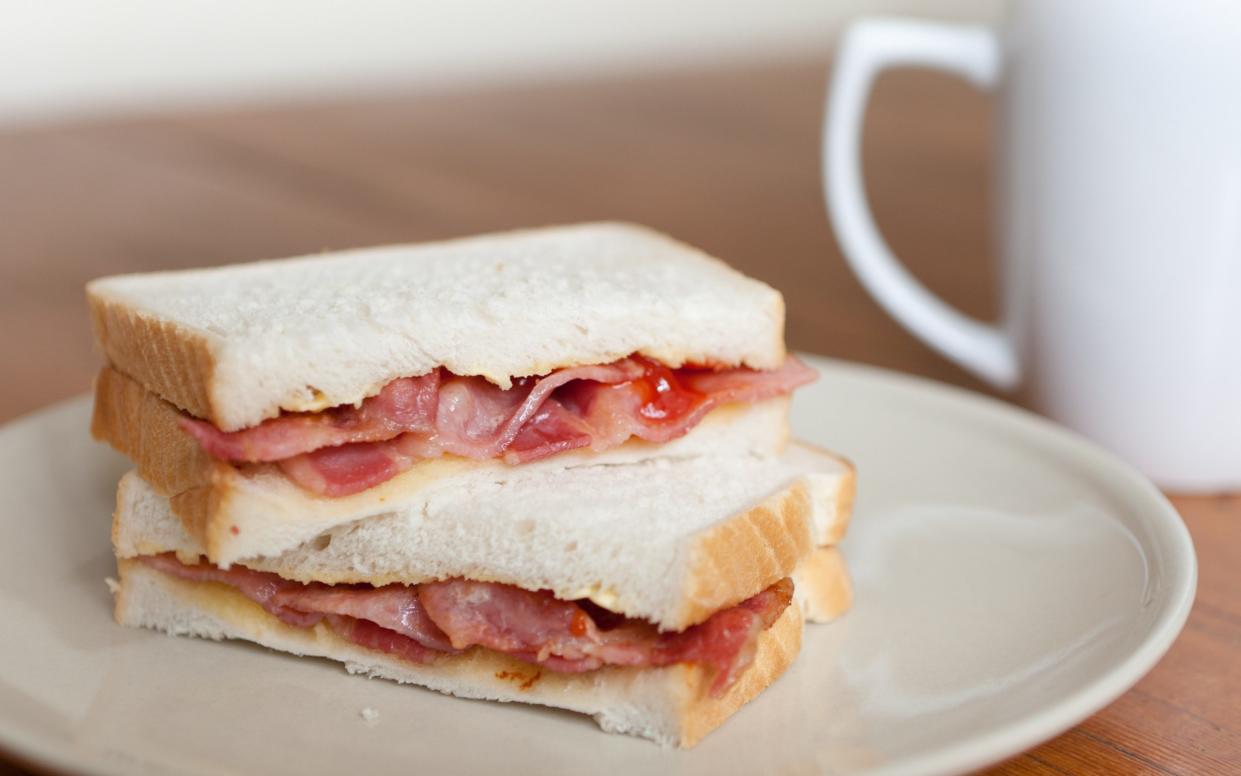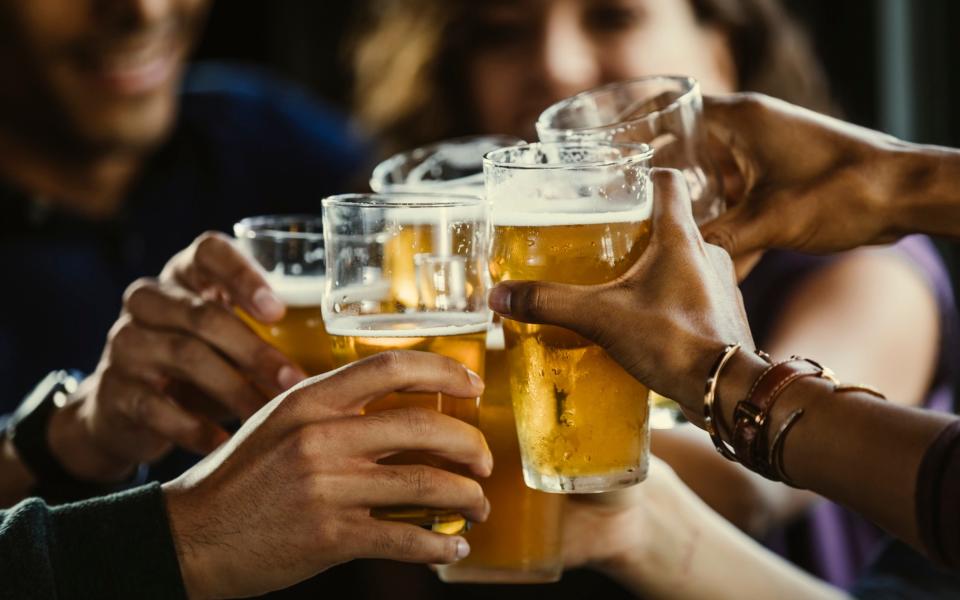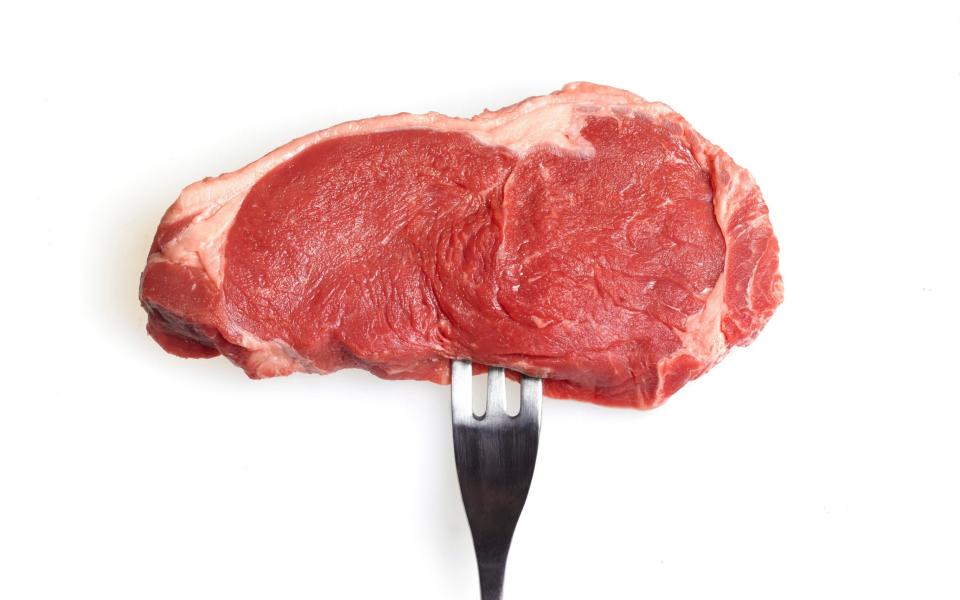The foods that cancer experts want you to stop eating

Crispy bacon sandwiches in white bread, a nice cold beer on a sunny afternoon. We’ve long known they are not the healthiest of choices, and as scientists warn of health risks, these small pleasures feel less comforting.
Earlier this year, the American Cancer Society reported that the number of under 55s diagnosed with colorectal cancer has doubled compared with a decade ago.
Meanwhile, the Institute Agency for Research on Cancer (IARC) plans to designate the artificial sweetener Aspartame as a possible carcinogen.
Philip Calder, professor of nutritional immunology at the University of Southampton, says: “Cancer happens when cells lose control and they just keep dividing, so you get more and more of these kinds of cells that you shouldn’t have.”
Excessive consumption of some foods has been linked to cancer, but others require more research.
Major culprits
Salami, bacon, sausages and ham
In 2015, the IARC classified these processed meats as a “definite” cause of cancer. The NHS advises cutting consumption of processed meats to under 70g a day.
The reason for concern is chemicals called nitrites, which keep these foods fresher for longer. When cooked at high temperatures, nitrites can form cancer-causing compounds known as nitrosamines.
Replace with: Breakfast alternatives such as avocado or mushrooms.
Alcohol
Our bodies convert alcohol into a chemical called acetaldehyde, which damages cells. Sadie Boniface, of the Institute of Alcohol Studies, says: “There is an increased risk of breast, oesophageal, mouth and throat cancer starting from low levels of alcohol consumption, and also an increased risk of liver and colorectal cancers at higher levels of drinking.”
Replace with: The growing range of alcohol-free beers and spirits now on offer means cutting down is getting easier.

Concerns
Beef and red meat
Excessive consumption of beef, lamb and pork is known to up cancer risk. One of the reasons for this is a molecule called haem – too much can drive cellular alterations in the colon lining, which can become carcinogenic.

Sugary soft drinks
Scientists at the Harvard T H Chan School of Public Health found women who had more than two sugary beverages a day had more than double the risk of early onset colorectal cancer.
Calder believes this may be because people who consume a lot of sugary drinks are more likely to be obese, a key risk factor for cancer.
Replace with: Water, milk, unsweetened coffee or tea.
Cakes, breakfast cereals, chocolate and sweets
These products are extremely sugary. While no randomised control trial has shown a direct link between sugar and cancer, nutritionists say people who consume a large amount of sugar usually have a fairly poor diet. Duane Mellor, a dietitian at Aston University, says this usually means a lower fibre intake and fewer bowel movements. “That regular movement gives less time for any carcinogens that are in the colon to come in contact with cells that could become cancerous.”
Replace with: Sources of fibre such as tinned or fresh vegetables.

Possible suspects
Sugar-free chewing gum
The scientific evidence is murky on artificial sweeteners. Last week, scientists working for the World Health Organisation suggested aspartame could be a possible cause of cancer. But as with sugar, it may be that this is due to people who consume artificial sweeteners having a poorer quality diet.
Replace with: Fruit.
Peanuts and peanut butter
It’s not peanuts that are the problem, but aflatoxins, toxins made by certain fungi which are found on peanuts and tree nuts. Aflatoxins have been associated with an elevated risk of liver cancer.
You can reduce your exposure by buying only major brands of peanuts and peanut butter, and by discarding nuts that look mouldy, discoloured or shrivelled.
Replace with: Alternatives like sunflower and almond butter.
Tap Water
Polyfluoroalkyl substances (PFAs) used in various consumer and industrial processes are increasingly found in our drinking water. Pressure has been growing on the Government to introduce more stringent drinking water legislation after studies have linked them to certain cancers.
Replace with: A tap-fitted filter or filter pitcher can be used for those worried about PFAs.
Flavoured yoghurts
The spotlight on ultra-processed foods has led to concerns over products with high levels of emulsifiers, synthetic chemicals which typically blend ingredients together and create a smooth texture.
No study has proven emulsifiers to be directly carcinogenic, but they are believed to trigger inflammation in the gut and bloodstream because the body does not recognise them.
Replace with: Plain yoghurt, flavoured with fruit or honey.
White bread
Nutritionists are also concerned about heavily processed grains, such as white bread products.
Population studies have associated a high intake of refined grains with risk of colon and gastric cancer. “If you’re eating a lot of refined grains, you’re probably not eating many wholegrain products which contain more of the fibre you need,” says Mellor.
Replace with: Wholegrain bread.


